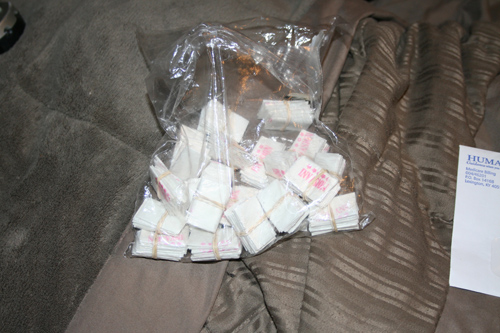Editorial: We need to fight this war against heroin here and now

A scene from early in the first season of the acclaimed HBO series “The Wire” dealt with Baltimore’s drug trade and how the system — including law enforcement, schools, government and the media — had failed that city.
A detective on the show makes an offhand comment about how they’re fighting the “war on drugs.”
“You can’t even call this a war,” his partner responds. “Wars end.”
It might be overly cynical at this point in time to say the same system is failing Long Island in the fight against heroin. But it is fair to say we haven’t done nearly enough to keep men and women, young and old, from using the drug.
As the number of drug-trade arrests continues to rise across Suffolk County, so does the number of related deaths. And even as more school and emergency officials are being trained to administer Narcan, an opioid overdose reversal drug that has become more widely available, the number of overdoses continues to grow.
In a recent interview, Helene de Reeder of Eastern Long Island Hospital said “no one entity is enough” to treat an addict. The same can be said for prevention. But it makes sense that, as Paul Maffetone, the primary subject of this week’s cover story, stresses, the best path to prevention is to simply talk about the problem with the people closest to us.
We cannot afford to be ashamed of the fact that drug addiction has taken hold of our community and affected our families. Until more people are willing to share their stories with neighbors and parents are comfortable talking about opioid addiction with their children the same way they do marijuana, alcohol and sex, we will continue to disappoint future generations.
How can we expect our young to say no to the most addictive of drugs if they aren’t shown what happens when they say yes? How will someone treat their addiction if they don’t know what addiction is?
“I needed to get educated and that’s why I’m passionate about us educating our communities and it might help get more people into treatment,” Michael’s HOPE team member Samantha Paulus told us. “Otherwise nobody is talking about it and people are stuck in a situation nobody wants to be stuck in.”
Yes, there is more to be done at every layer of government to protect public health and safety in the face of widespread opioid abuse. There’s also plenty more we need to do right at home. We’re all in this war together.
Caption: 250 packets of heroin taken in a 2012 East End Drug Task Force bust.








